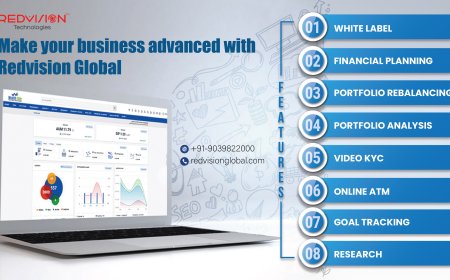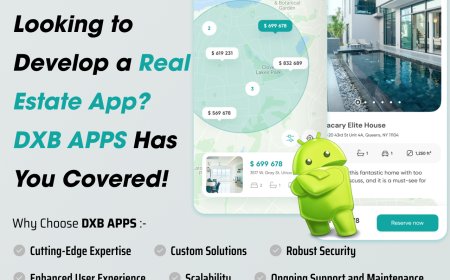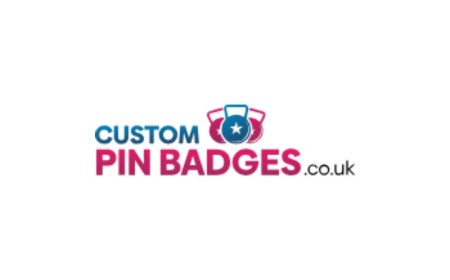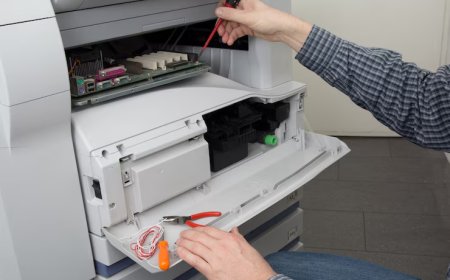How to Switch Careers in Columbus Washington Tech
How to Switch Careers in Columbus, Washington Tech Switching careers into the technology sector is one of the most impactful professional decisions you can make—especially in a growing regional hub like Columbus, Washington. While many assume tech careers are limited to coastal cities like Seattle or San Francisco, the reality is that Columbus and its surrounding areas are experiencing a quiet but
How to Switch Careers in Columbus, Washington Tech
Switching careers into the technology sector is one of the most impactful professional decisions you can make—especially in a growing regional hub like Columbus, Washington. While many assume tech careers are limited to coastal cities like Seattle or San Francisco, the reality is that Columbus and its surrounding areas are experiencing a quiet but powerful tech expansion. From software development and cybersecurity to data analytics and IT infrastructure, the demand for skilled professionals is rising faster than the local talent supply. This guide provides a comprehensive, step-by-step roadmap to help you transition successfully into a tech career in Columbus, Washington, whether you’re coming from healthcare, education, retail, manufacturing, or any other field. By the end of this tutorial, you’ll understand the local landscape, the skills you need, the resources available, and how to position yourself for long-term success in this dynamic industry.
Step-by-Step Guide
Step 1: Assess Your Current Skills and Identify Transferable Strengths
Before you dive into coding bootcamps or certifications, take stock of what you already bring to the table. Many career switchers underestimate the value of their existing experience. For example, if you’ve managed budgets in retail, you have financial analysis skills applicable to data-driven roles. If you’ve coordinated teams in healthcare, you understand project timelines and communication—key components of agile software development. Even customer service roles build empathy and problem-solving abilities critical for UX design or technical support.
In Columbus, Washington, employers increasingly value adaptability and soft skills as much as technical proficiency. Start by listing your core competencies: communication, organization, critical thinking, leadership, or attention to detail. Then map them to tech roles. For instance:
- Strong communicator → Technical Writer, Product Owner
- Detail-oriented → QA Tester, Data Analyst
- Project coordinator → Project Manager, Scrum Master
- Problem solver → Cybersecurity Analyst, DevOps Engineer
Use free tools like LinkedIn’s Skills Assessment or Google’s Career Certificates self-assessment to validate your strengths. This step isn’t about starting from zero—it’s about reframing your background as an asset.
Step 2: Research Local Tech Roles and Industry Demand
Columbus, Washington, is home to a diverse mix of small-to-midsize tech firms, manufacturing companies with digital transformation initiatives, and remote-first teams serving national clients. The region’s economy is anchored by logistics, agriculture technology, and defense contracting—all of which rely heavily on IT infrastructure and data systems.
According to the Washington State Employment Security Department, tech job growth in the Pacific Northwest has outpaced the national average by 18% over the past three years. In Columbus specifically, roles in network administration, software support, GIS mapping, and industrial automation are seeing the highest demand. Companies like Columbia River Systems, Pacific Northwest Tech Solutions, and regional branches of national firms such as Boeing and Amazon Web Services (AWS) partners are actively hiring non-traditional candidates.
Use platforms like Indeed, LinkedIn, and Glassdoor to search for “entry-level tech jobs Columbus WA.” Filter by “no experience required” or “training provided.” Pay attention to recurring keywords in job descriptions: Python, SQL, Linux, AWS, Agile, Jenkins, Jira, ITIL. These are your signal words—learn them.
Step 3: Choose a Tech Path That Aligns With Your Interests and Lifestyle
Not all tech careers require late nights coding or advanced mathematics. The field is broad, and your ideal path should match your natural inclinations and daily rhythm. Here are the most accessible and in-demand entry points in Columbus:
- IT Support / Help Desk: Ideal for those who enjoy troubleshooting and helping others. Entry-level salaries range from $45,000–$58,000 annually.
- Web Development (Frontend): Great for creative thinkers. Learn HTML, CSS, JavaScript. Freelance and remote opportunities are abundant.
- Data Analysis: Perfect for detail-oriented individuals with an analytical mindset. Tools: Excel, Google Sheets, Power BI, SQL.
- Cybersecurity Analyst (Associate Level): Growing rapidly due to increased digital threats. Certifications like CompTIA Security+ are highly valued locally.
- Technical Writing: If you’re a strong writer, this role documents software, APIs, and user manuals. High demand in defense and medical tech sectors.
Take a free 30-minute career quiz from freeCodeCamp or Coursera’s “What’s Your Tech Fit?” to narrow your options. Avoid jumping into full-stack development unless you’re prepared for a steep learning curve. Start with a focused, achievable goal.
Step 4: Acquire Foundational Skills Through Local and Online Programs
Formal degrees are not required for most entry-level tech roles in Columbus. What matters is demonstrable skill. Here’s how to build them affordably and effectively:
Option A: Online Certifications (Low Cost, High ROI)
Enroll in Google’s IT Support Professional Certificate (Coursera), Microsoft’s Azure Fundamentals, or freeCodeCamp’s Responsive Web Design Certification. These programs take 3–6 months part-time and include hands-on projects you can showcase.
Option B: Local Bootcamps and Workshops
Columbus Community College offers a 12-week “Tech Foundations” program with partnerships from local employers. The program includes resume workshops, mock interviews, and a capstone project with a regional tech company. Tuition is under $1,200 for residents.
Option C: Self-Paced Learning with Projects
Build a portfolio. If you’re learning web development, create a personal website. If you’re studying data analysis, analyze public datasets (e.g., local school district budgets, weather patterns in Clark County) and publish your findings on GitHub or Medium. Employers in Columbus value real work over certificates.
Commit to 10–15 hours per week. Consistency beats intensity. Use Pomodoro timers and habit-tracking apps to stay on schedule.
Step 5: Gain Practical Experience Through Volunteering, Internships, or Freelancing
Without real-world experience, it’s difficult to land your first tech job. Here’s how to get it without waiting for an employer to hire you:
- Volunteer for Nonprofits: Many local nonprofits (e.g., food banks, animal shelters, community centers) need help with websites, databases, or digital campaigns. Offer your services on VolunteerMatch.org or through the Columbus Chamber of Commerce.
- Join a Tech Meetup: Attend events hosted by Columbus Tech Hub or Washington Tech Alliance. These monthly gatherings connect newcomers with mentors and open internship opportunities.
- Freelance on Upwork or Fiverr: Start small—create a logo for a local bakery, fix a WordPress site for a dentist, or organize spreadsheets for a small business. Build reviews and testimonials.
- Shadow a Tech Professional: Reach out via LinkedIn to IT staff at local companies. Ask if you can spend an hour observing their day. Most professionals are happy to help someone making a genuine transition.
Every project you complete becomes a talking point in interviews. Document everything. Take screenshots, write case studies, and store them in a simple Google Site or Notion portfolio.
Step 6: Build a Tech-Optimized Resume and Online Presence
Your resume must speak the language of tech recruiters. Avoid generic phrases like “hardworking team player.” Instead, use action verbs and quantifiable results:
Before: “Managed customer service team.”
After: “Led a team of 8 support agents, reducing ticket resolution time by 35% through improved CRM workflow documentation.”
Include a “Technical Skills” section even if your experience is limited. List tools you’ve learned: Excel, SQL, GitHub, Trello, Zoom, Slack, Windows Server, etc.
Optimize your LinkedIn profile:
- Use “Aspiring Tech Professional | Transitioning from [Previous Field]” as your headline.
- Add a professional photo and a summary that tells your story: “Former educator turned self-taught web developer passionate about building accessible digital tools for small businesses in Clark County.”
- Post weekly updates: “Learned how to connect a database to a website today. Here’s what I built…”
Claim your domain name (e.g., yourname.tech) and create a simple portfolio site using WordPress, Wix, or GitHub Pages. Include your projects, resume, and contact info. This is your digital handshake.
Step 7: Network Strategically Within the Columbus Tech Community
In a mid-sized city like Columbus, relationships matter more than in large metros. The tech scene is tight-knit, and referrals drive 60% of hiring decisions.
Attend these local events regularly:
- Columbus Tech Meetup (Monthly): Held at the Columbus Innovation Center. Focuses on local startups and hiring trends.
- Washington Tech Alliance Job Fair (Biannual): Features 30+ regional employers actively recruiting for entry-level roles.
- Women in Tech Columbus: Supportive community for underrepresented groups in tech.
Engage on LinkedIn by commenting thoughtfully on posts from Columbus-based tech leaders. Share articles about local tech growth. Join the “Columbus Tech Jobs” Facebook group. Don’t ask for a job outright—ask for advice. People love to help when they feel you’re sincere.
Step 8: Apply Strategically and Prepare for Behavioral and Technical Interviews
When applying for jobs, tailor every application. Don’t send the same resume to 50 companies. Research each employer: What do they do? What technologies do they use? Mention this in your cover letter.
Prepare for two types of interviews:
Behavioral Interviews: Use the STAR method (Situation, Task, Action, Result). Example: “Tell me about a time you solved a complex problem.”
→ “As a former retail manager, our inventory system kept crashing during sales. I documented the error patterns, contacted the vendor, and created a temporary workaround using Excel macros. Downtime dropped by 70%.”
Technical Interviews: For entry-level roles, expect basic questions. If applying for IT support: “How do you troubleshoot a printer not connecting to the network?” For data analysis: “Explain how you’d find duplicate entries in a spreadsheet.” Practice on HackerRank, LeetCode (easy problems), or TechInterviewHandbook.com.
Bring your portfolio. Show your GitHub. Mention your volunteer projects. Employers in Columbus care more about your initiative than your pedigree.
Step 9: Accept Your First Role and Commit to Continuous Growth
Your first job may not be your dream role. That’s okay. Many successful tech professionals in Columbus started as help desk technicians, data entry clerks, or QA testers. The goal is to get your foot in the door.
Once hired:
- Ask for feedback monthly.
- Volunteer for cross-departmental projects.
- Take advantage of employer-sponsored training (many companies offer tuition reimbursement).
- Study for your next certification (e.g., CompTIA A+, Google Data Analytics, AWS Certified Cloud Practitioner).
Within 12–18 months, you’ll be ready to move into mid-level roles: Junior Developer, Data Analyst, Network Administrator, or IT Project Coordinator. The key is consistency, curiosity, and humility.
Step 10: Plan Your Long-Term Career Path
Where do you want to be in 5 years? The tech field offers multiple trajectories:
- Specialist Path: Become an expert in cybersecurity, cloud infrastructure, or data science.
- Management Path: Move into team lead, project manager, or IT director roles.
- Entrepreneurial Path: Start your own tech consulting firm serving local businesses.
Stay connected to the Columbus tech ecosystem. Mentor others. Speak at meetups. Write blog posts. The more you give back, the more your career accelerates.
Best Practices
Practice Consistent, Focused Learning
Learning tech is not a sprint—it’s a daily habit. Dedicate 30 minutes each morning to reading documentation, watching a tutorial, or practicing code. Use spaced repetition tools like Anki to retain concepts. Avoid the trap of “tutorial hell”—don’t just watch videos. Build something every day, even if it’s small.
Embrace Failure as Feedback
Every error message, every failed project, every rejected application is data—not defeat. In tech, debugging is a core skill. Apply that mindset to your career transition. Ask: “What did this teach me?” rather than “Why did this happen to me?”
Focus on Outcomes, Not Certificates
Employers in Columbus care more about what you can do than what paper you hold. A GitHub repository with five working projects is more valuable than ten certificates you never used. Prioritize building over consuming.
Be Transparent About Your Transition
Don’t hide your non-tech background. Own it. Say: “I came from education, and I bring strong communication and patience to problem-solving.” Many hiring managers appreciate candidates who bring diverse perspectives. Your background is your differentiator.
Build a Support System
Switching careers is emotionally taxing. Find a mentor—someone who made the jump and is now in a role you aspire to. Join online communities like Reddit’s r/learnprogramming or r/careeradvice. Share your wins and struggles. You’re not alone.
Stay Local, Think Regional
While remote work is common, Columbus-based employers value candidates who are physically present or willing to relocate locally. Show up. Attend events. Be visible. Your proximity gives you an edge over applicants from out of state.
Tools and Resources
Learning Platforms
- freeCodeCamp – Free, project-based coding curriculum (HTML, CSS, JavaScript, Python)
- Coursera – Google IT Support, IBM Data Analyst, and AWS courses (financial aid available)
- Khan Academy – Excellent for foundational math and logic concepts
- Codecademy – Interactive coding lessons with immediate feedback
- Udemy – Affordable courses on SQL, Excel, cybersecurity, and more (wait for $10 sales)
Practice and Portfolio Tools
- GitHub – Host your code and projects. Essential for developers and analysts.
- Notion – Build your portfolio, track progress, store notes in one place.
- Google Sites – Free, simple website builder for non-developers.
- Replit – Write and run code in your browser—no setup required.
- Datawrapper – Create professional charts and visualizations from datasets.
Local Columbus Resources
- Columbus Community College – Tech Pathways Program – 12-week certificate with job placement support
- Columbus Innovation Center – Co-working space with free tech workshops and networking events
- Washington Tech Alliance – Regional advocacy group offering job boards and mentorship
- Clark County Library – Digital Skills Lab – Free one-on-one tech coaching sessions
- Women in Tech Columbus – Support group for women and non-binary individuals entering tech
Job Boards
- Indeed.com – Search “entry level tech Columbus WA”
- LinkedIn Jobs – Filter by “No Experience Required” and “Remote Possible”
- Washington State Jobs Portal – State-funded listings with local filters
- AngelList – For startups hiring in the Pacific Northwest
- Columbus Tech Hub Job Board – Local-only listings, updated weekly
Community and Networking
- Columbus Tech Meetup (Meetup.com) – Monthly gatherings
- Washington Tech Alliance LinkedIn Group – Active discussions and job posts
- Facebook Group: “Columbus Tech Jobs & Opportunities” – Real-time hiring alerts
- Portland Tech Talks (Just 90 Minutes Away) – Attend events to expand your network regionally
Real Examples
Example 1: Maria, Former Retail Manager → IT Support Specialist
Maria worked in retail for 12 years managing inventory and customer service. When her store closed, she felt lost. She enrolled in Columbus Community College’s 12-week IT Fundamentals program. She volunteered to fix computers for the local library and built a simple inventory tracker using Google Sheets and Forms. Within six months, she landed a part-time IT support role at a small medical clinic. She earned her CompTIA A+ certification and was promoted to full-time within a year. Today, she manages the clinic’s network and mentors new hires.
Example 2: James, Former High School Teacher → Data Analyst
James taught math and was frustrated by how little data was used to improve student outcomes. He taught himself Excel and Power BI through freeCodeCamp. He analyzed public school performance data from the Washington State Office of Superintendent of Public Instruction and published his findings in a blog. He shared it with the local school district. They hired him as a part-time data analyst. He now works full-time for a regional education technology nonprofit, helping districts use data to allocate resources.
Example 3: Aisha, Stay-at-Home Parent → Web Developer
Aisha wanted to return to work after having twins. She had no tech background but loved design. She spent evenings learning HTML and CSS via YouTube and Codecademy. She built a website for a friend’s handmade soap business—then another. She created a portfolio site and applied to three local agencies. One hired her as a junior frontend developer. She now works remotely three days a week and freelances on weekends. Her story was featured in the local newspaper, inspiring other parents to follow suit.
Example 4: Robert, Former Mechanic → Cybersecurity Analyst
Robert worked in auto repair for 15 years. He noticed how many vehicles now relied on software systems. He became fascinated with how cars could be hacked. He took a free cybersecurity course on Coursera and joined a local hacking club (ethical, of course). He volunteered to audit the security of a small local business’s network. His findings impressed the owner, who referred him to a regional IT firm. He’s now in a cybersecurity training program and will be certified within 18 months.
FAQs
Do I need a college degree to switch into tech in Columbus, Washington?
No. While degrees can help, most entry-level tech roles in Columbus prioritize skills and experience over formal education. Certifications, portfolios, and hands-on projects are more impactful than a diploma in many cases.
How long does it take to switch into a tech career?
With consistent effort (10–15 hours per week), most people land their first tech job within 6–12 months. Some faster-track it in 4–5 months if they already have strong analytical or organizational skills.
What’s the average salary for entry-level tech jobs in Columbus, WA?
Entry-level tech roles in Columbus range from $45,000 to $65,000 annually, depending on the role. IT Support and Data Entry roles start lower; Web Developers and Junior Analysts tend to be on the higher end. Salaries are rising due to regional demand.
Can I work remotely while transitioning?
Yes. Many online learning resources and freelance gigs are remote. However, building local connections increases your chances of landing a stable, long-term position. A hybrid approach—learning remotely while attending local events—is ideal.
Is there age discrimination in tech hiring in Columbus?
Not significantly. Many employers in Columbus value maturity, reliability, and life experience. Candidates over 40 are often preferred for roles requiring communication, patience, and problem-solving—traits that come with experience.
What if I’m not good at math?
You don’t need advanced math for most tech roles. Web development, technical writing, IT support, and UX design require logic and pattern recognition—not calculus. Focus on practical applications, not theoretical math.
Are there scholarships or financial aid for tech training in Columbus?
Yes. Columbus Community College offers need-based tuition waivers. Nonprofits like TechBridge and Girls Who Code occasionally offer stipends for low-income learners. Check with the Clark County Workforce Development office for local grants.
How do I know if tech is right for me before quitting my job?
Test it. Spend 30 minutes a day for 30 days learning a skill. Build one small project. Volunteer for a tech task. If you feel energized and curious after a month, you’re likely a good fit. If you feel drained, it may not be the right path—for now.
What’s the biggest mistake people make when switching careers?
Trying to learn everything at once. Focus on one role, one tool, one project. Master that. Then expand. Overwhelm leads to burnout.
Can I switch careers without moving away from Columbus?
Absolutely. Columbus has more tech opportunities than most people realize. The key is being proactive, visible, and persistent. You don’t need to relocate to Seattle or Portland to build a successful tech career.
Conclusion
Switching careers into technology in Columbus, Washington, is not only possible—it’s increasingly common and highly rewarding. The path doesn’t require a computer science degree, a massive budget, or years of waiting. It requires clarity, consistency, and courage. You don’t need to be the smartest person in the room. You just need to show up, learn one thing at a time, and build something real.
The tech industry in Columbus is hungry for people who bring diverse perspectives, strong work ethics, and a willingness to grow. Whether you’re coming from retail, education, healthcare, or manufacturing, your past experience is not a liability—it’s your advantage. The skills you’ve honed in other fields—communication, problem-solving, adaptability—are exactly what tech teams need to thrive.
Start small. Build publicly. Network locally. Learn relentlessly. Your first job won’t be your last. But it will be the most important one—the one that opens the door to a future you can’t yet imagine.
There’s no better time than now to begin. The code is waiting. The projects are waiting. The community in Columbus is waiting—for you.





























